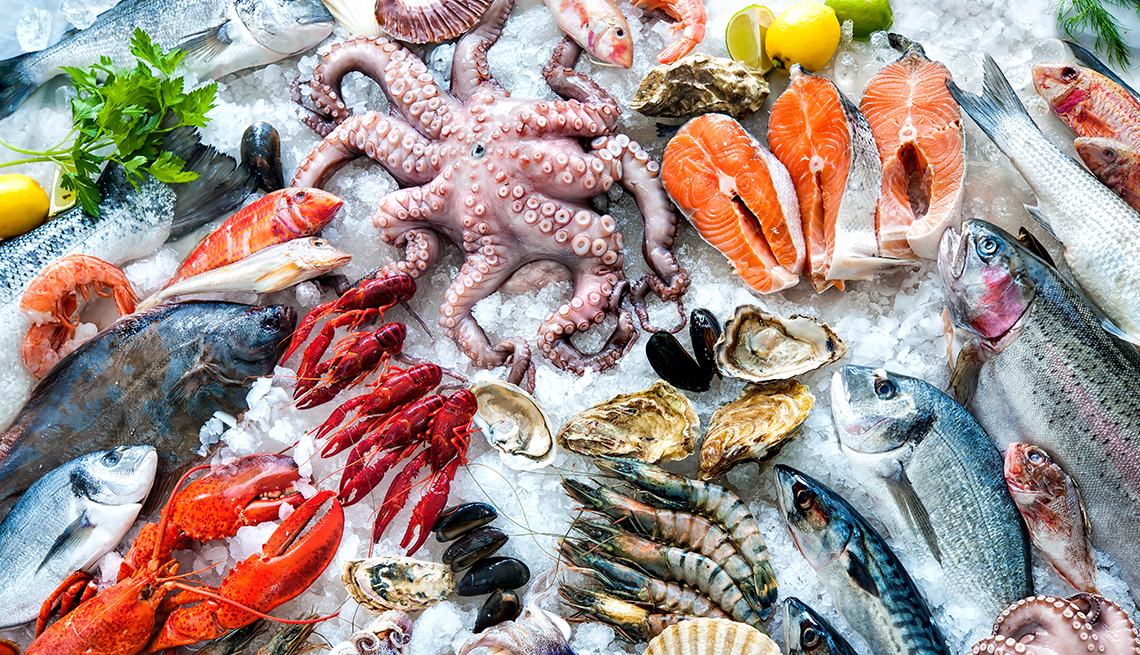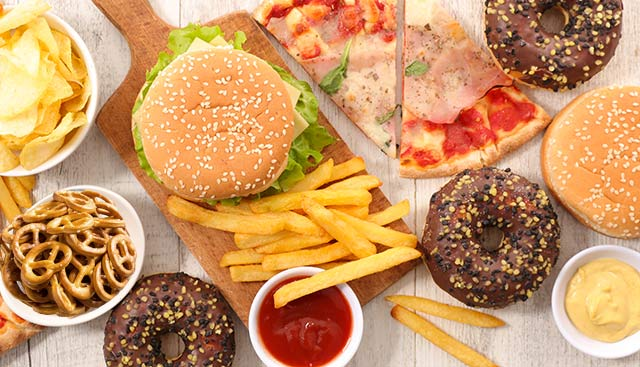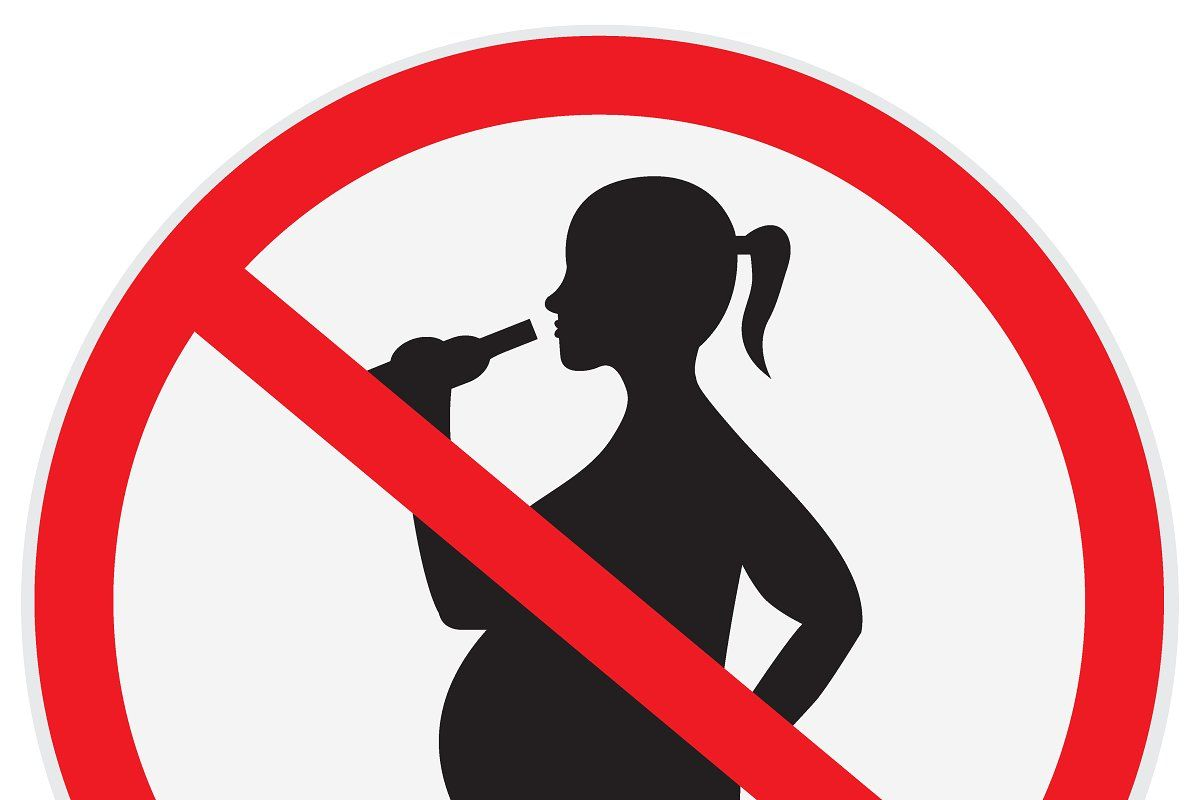Diet is simply defined as what a person consumes – this can be in the form of food or drinks. When a woman is pregnant, one of the first things they learn is what they should and shouldn’t consume. To maintain a healthy pregnancy, approximately certain numbers of calories are needed each day.
Sticking with a good diet, especially ones rich in key nutrients like folate, protein, iron, calcium, vitamin D, DHA and iodine, will help you and baby get the nourishment you both need.
NOTE: And if at any point during your pregnancy you’re concerned that you’re not getting enough of certain vitamins or minerals, talk with your doctor.
One of the effects of pregnancy to many women is change in appetite where these women would crave certain food and drink. However, while pregnant, certain foods should only be rarely consumed, while others should be avoided completely.
Here are 7 foods and drinks to be ditched or minimized while pregnant.
Unwashed fruits and vegetables
Fruits and vegetables have always been known to have good nutritional values not just for pregnant women but humans in general. It is important to always clean raw fruits and veggies these days. Harmful bacteria like Listeria, Salmonella or E. coli can lurk on the outsides of these edibles and the microbes can easily spread to the inside flesh when a fruit or vegetable is cut, juiced or peeled.
A thorough rinse under running water before eating or prepping will get the job done, and if you spot any dirt, bruised or damaged part, scrape or cut it away since these areas are more likely to harbor bacteria.
Seafood high in Mercury

Mercury is a highly toxic element, which isn’t needed by babies. Too much mercury can harm the baby’s developing nervous system, weakens the immune system, and destroy the kidneys. Often mercury is found in polluted water, as well as bigger and older fish.
It is important to know fishes which are carriers of high levels of mercury so as to steer clear of them. Some of these seafood are: shark, swordfish, king mackerel (Titus), tuna (especially bigeye tuna), marlin, tilefish, etc.
Fish that are good to eat during pregnancy are wild salmon (Eja Osan), pollock (called Panla or Hake in Nigeria), skipjack (canned light) tuna, cod fish (Stockfish in Nigeria), freshwater trout (called ojuyobo in western Nigeria), sole (abo) , tilapia, shrimp, sardines, anchovies (slim dried fish) and scallops.
Fatty fish like salmon and anchovies are especially good options, as they are high in omega-3 fatty acids, which are important for your baby.
Undercooked or raw Meat and Fish
This one will be tough for fans of steak, suya, barbeque or sushi.
Raw fish, especially shellfish, can cause several infections. These can be viral, bacterial, or parasitic infections, such as norovirus, Vibrio, Salmonella, and Listeria. Some of these infections may only affect you, causing dehydration and weakness. Other infections may be passed on to your baby with serious, or even fatal, consequences. Pregnant women are especially susceptible to listeria infections.
Undercooked meat (including poultry) can harbor such bacteria as E. coli, Trichinella and Salmonella (all of which can cause a bad case of food poisoning) or cause toxoplasmosis. Toxoplasmosis is a very bad disease as it affects the baby in the womb, even if the mother isn’t affected. Some babies may have symptoms when they’re first born, such as a build up of fluid in the brain or an abnormally small head. Others may develop problems such as vision or hearing loss as they get older. Toxoplasmosis infections also can result in miscarriage or stillbirth – its most devastating effect.
Processed foods (junks)

Although craving different kinds of food occurs during pregnancy, it is advisable to ditch all forms of processed foods. Pizza, shawarma, fries, cakes, small chops, biscuits, pastries, etc are some of these junks. There’s no better time than pregnancy to start eating nutrient-dense foods to help both you and your growing little one. You’ll need increased amounts of many essential nutrients, including protein, folate, choline, and iron.
Processed foods have very little to no nutritional value and what both mother and child need during pregnancy are foods that will add nutrients to the body, making them very healthy. Processed foods are also high in calories, sugar, and added fats.
Sugar, when consumed in large quantities, can lead to weight gain, hormonal imbalance, mood swings, and complications with pregnancy.
An optimal pregnancy eating plan should mainly consist of whole foods, with plenty of nutrients to fulfill yours and baby’s needs.
Excess caffeine
Caffeine uptake in the blood is fast and reaches the baby quickly through the placenta. It is toxic to developing babies. Caffeine affects your central nervous system and the adrenal gland while remaining in your circulatory system for about 11 hours, and the unborn baby struggles to break down this toxic substance. Caffeine is a diuretic and also causes dehydration. These are not ideal for a pregnant woman.
To be safe, health care providers often recommend avoiding or limiting the amount of caffeine in your diet to less than 200 milligrams (mg) a day during pregnancy.
Alcohol

No level of alcohol has been proved safe during pregnancy. The safest bet is to avoid alcohol entirely. It’s advised to completely avoid drinking alcohol when pregnant, as it increases the risk of miscarriage and stillbirth. Even a small amount can negatively impact your baby’s brain development.
Drinking alcohol may also result in fetal alcohol syndrome, which can cause facial deformities and intellectual disability.
If you’re concerned about alcohol you drank before you knew you were pregnant or you think you need help to stop drinking, consult your healthcare provider.
Cold drinks and Beverages
A pregnant woman’s stomach is temperature-sensitive. Having iced and chilled drinks including cold water, may lead to the stomach and blood vessels shrinking all of a sudden which can’t be good for the baby. Side effects of this could be stomach spasms and early miscarriage besides lowering the unborn baby’s food supply and growth leading to congenital disabilities.
Carbonated drinks are made from carbonated water and these often have carbon-dioxide bubbles, producing carbonic acid. Carbonic acid may give you severe heartburn and indigestion, increasing the acidic levels for close to an hour. Added to caffeine, this makes heartburn in you and the baby worse, which is very detrimental to the baby.

Discussion about this post